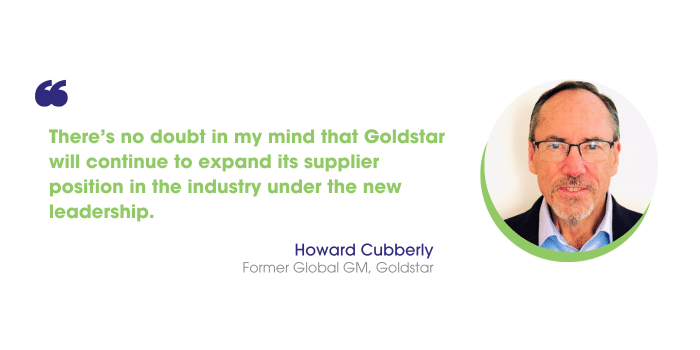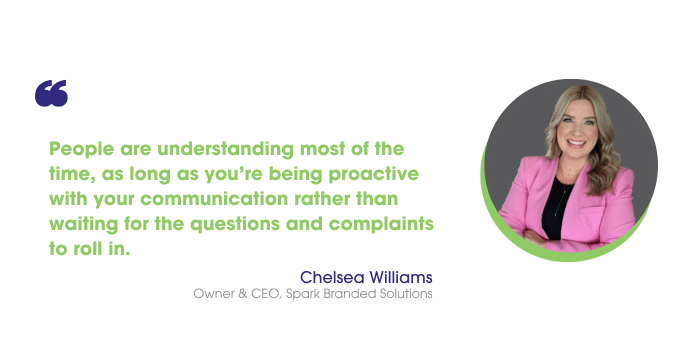The most buzzworthy promotional products campaign of the year has hit a major snag, indicating the difficulty that comes with e-commerce.
It’s been two months since Dunkin’s “DunKings” commercial – featuring Ben Affleck, Matt Damon and Tom Brady in matching Dunkin’-branded tracksuits – stole the show at Super Bowl LVIII, but many customers still haven’t received the viral streetwear.
Eager to resemble the trio (and possibly join their fantasy boy band), viewers flocked to Dunkin’s website on February 12 to purchase their own tracksuit, which included a separately sold jacket, pants and fuzzy pink bucket hat.
- All three items sold out in 19 minutes, making it the “fastest collection to sell out in Dunkin’ history,” Boston.com reported.
Customer Complaints
While several celebrities, politicians and influencers have been seen sporting the orange and pink tracksuits, many customers have taken to social media to air their grievances: Not only have they not received the merchandise, but they also haven’t heard from Dunkin’ about the delay.
- Initially told it could take eight to 10 business days for shipping, customers who reached out to Dunkin’ for a status update were informed that the shipment timeline had extended to at least five weeks, according to Boston.com.
In a statement from a Dunkin’ spokesperson to Boston.com, the high demand for the DunKings merchandise led to “fulfillment issues with our partners, resulting in delayed shipping times.”
“We apologize for the inconvenience and are in the process of communicating an updated timeline, along with offering a $25 Dunkin’ gift card to impacted customers,” the statement says.

Los Angeles-based BAMKO, which has worked with the coffee and doughnut brand for years and manages Dunkin’s online store, has been caught in the crosshairs.
“We were just the fulfillment partner for this – we didn’t make the goods,” says Jake Himelstein, president of BAMKO, ranked the No. 4 distributor in the inaugural PPAI 100. “There’s unprecedented demand – it’s the fastest-selling program we’ve ever seen at BAMKO – and we’re working as quickly as possible to fulfill that demand.”
- While BAMKO is set to provide fulfillment, an entertainment industry production company close to the marketing campaign is working with another promotional products distributor to produce the merchandise, PPAI Media has learned.
E-Commerce Challenges
Company stores can be a vital part of an organization’s digital transformation and an important channel of long-term business for distributors with residual sales and lifetime value.
However, e-commerce comes with its own set of unique challenges, as Brian Roney, senior director of product design at Proforma – ranked the No. 5 distributor in the inaugural PPAI 100 – can attest.
- The Ohio-based company launched its 10,000th e-commerce store last month.
“Unreliable suppliers are the easiest way to guarantee a poor customer experience,” Roney says. “We have carefully selected our preferred supplier partners based on an array of criteria, including e-commerce capabilities. Our supplier partners have been amazing and help ensure a great e-commerce experience for the end users.”
RELATED: Solutions Center: Company Stores
Of course, mistakes can – and do – happen. Roney believes these situations can be defining moments in your relationships with clients. “We advise to apologize, overcommunicate and ensure consistent management to improve the experience from here forward,” he says. “In some cases, it can be useful to discuss with clients what went wrong and how you will avoid this situation in the future.”

Although nobody wants to be the bearer of bad news, transparency is important to maintain customers’ trust and loyalty, says Chelsea Williams, a 2023 PPAI Rising Star and owner/CEO of Spark Branded Solutions in Tennessee.
“We not only address shipping and product delays head-on with our key buyers, but we also discuss with them how to communicate with each individual purchaser,” Williams says. “Sometimes, that’s an email coming from the key buyer, or it might even be an email from our team. People are understanding most of the time, as long as you’re being proactive with your communication rather than waiting for the questions and complaints to roll in.”
The biggest e-commerce hurdle that Spark Branded Solutions has encountered, Williams says, is the number of touches required for each order, which directly impacts operational efficiency.

“Because there are no touchpoints required, inventory orders are easy, but clients have shifted to wanting on-demand purchases,” she says. “They don’t want to hold a ton of inventory, so we have to partner with vendors and decorators who offer no or low minimum order quantities.
“We’ve tried streamlining with some of the ‘on-demand’ companies who use API integration to fill the orders without the manual touches,” Williams adds, “but we’ve had several issues. The amount of time and touchpoints it takes to process and produce a one-piece order hinders our productivity and profitability, but it’s a necessary part of doing e-commerce business and winning the larger contracts.”


